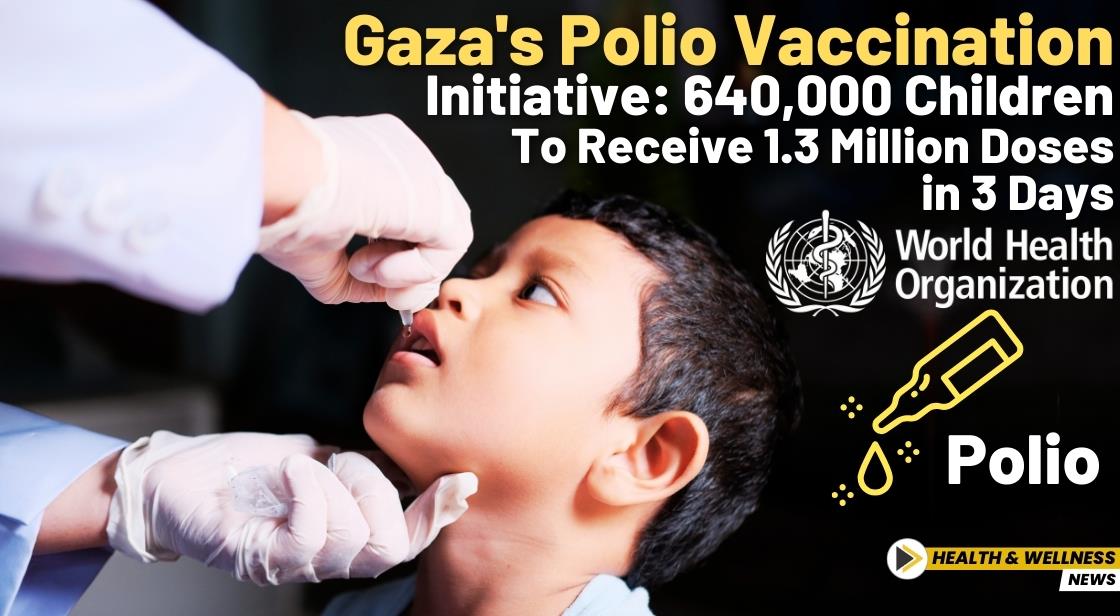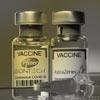Gaza's Polio Vaccination Initiative: 640,000 Children to Receive 1.3 Million Doses in 3 Days

News Synopsis
The World Health Organization (WHO) has announced a crucial vaccination campaign to combat polio in Gaza, despite ongoing conflict. The plan, which involves a comprehensive vaccination effort, is scheduled to start this Sunday and aims to reach 640,000 Palestinian children. This ambitious initiative comes in response to the first reported case of polio in Gaza in 25 years.
Limited Pauses in Fighting to Facilitate Vaccination
In a significant development, World Health Organization (WHO) has secured an agreement with Israeli authorities for temporary pauses in the fighting to enable the vaccination campaign. These "humanitarian pauses" will allow health workers to safely administer the vaccine amidst the ongoing conflict. Despite this arrangement, the campaign will face considerable challenges due to the extensive destruction in Gaza, including damaged infrastructure and a displaced population.
Campaign Logistics and Coordination
The vaccination campaign will span three days and will commence in central Gaza, utilizing the humanitarian pauses from 6 a.m. to 3 p.m. If necessary, an additional day may be added to ensure the campaign’s success. Following the initial phase in central Gaza, the campaign will move to southern and northern Gaza during similar pauses. Dr. Rik Peeperkorn, WHO’s representative in the Palestinian territories, emphasized the importance of this coordinated effort, which involves working closely with Israeli authorities to facilitate the process.
Target and Vaccination Strategy
The vaccination effort targets 640,000 children under the age of 10. Each child will receive two doses of oral polio vaccine, administered in two rounds. The first round of doses will be given initially, with the second round scheduled to occur four weeks later. Vaccination sites will be established throughout Gaza, covering both Israeli evacuation zones and other areas.
Distribution and Storage of Vaccines
The campaign will utilize over 1.3 million doses of polio vaccine, which have already been transported through the Kerem Shalom checkpoint and are stored in cold-chain facilities in Deir al-Balah to maintain their efficacy. An additional shipment of 400,000 doses is expected soon. The vaccines will be distributed by a team of more than 2,000 medical volunteers who will transport the vaccines to various sites across Gaza.
Fixed and Outreach Vaccination Sites
The vaccination campaign will feature over 400 fixed sites, including healthcare centers, hospitals, clinics, and field hospitals, with the highest concentration in Khan Younis. This area has the highest population density and a significant number of children under 10. Additionally, around 230 outreach sites will be established at community gathering points to extend the reach of the campaign beyond traditional medical centers.
Challenges in Vaccination Effort
The vaccination campaign will face numerous obstacles due to the extensive damage in Gaza. Approximately 65% of Gaza’s road network is reported to be damaged, and 19 out of 36 hospitals are out of service. Movement between the north and south of Gaza remains restricted due to ongoing military operations, complicating the distribution of vaccines and the execution of the campaign.
Limitations and Viability of the Campaign
Due to the challenging conditions, house-to-house vaccinations, a common practice in other polio campaigns, will not be feasible in Gaza. WHO has acknowledged that the success of the campaign depends on having all necessary components in place. Despite these challenges, WHO remains optimistic about the campaign's feasibility, provided that logistical and security measures are effectively managed.
Polio Vaccine Safety and Effectiveness
The oral polio vaccine used in this campaign is safe and effective, having been administered globally with great success. In rare instances, approximately 1 in 2.7 million doses, the live virus in the vaccine can cause paralysis. The recent outbreak in Gaza is linked to a mutated form of the virus derived from the oral polio vaccine, which can occasionally evolve into a new strain capable of causing outbreaks.
Conclusion
The WHO's polio vaccination campaign in Gaza represents a critical effort to curb a potentially devastating outbreak amid severe wartime conditions. With temporary pauses in fighting and a coordinated distribution strategy, the campaign aims to protect 640,000 children from polio. Despite significant challenges, the initiative underscores the global commitment to eradicating polio and safeguarding children's health in the face of adversity.
You May Like









